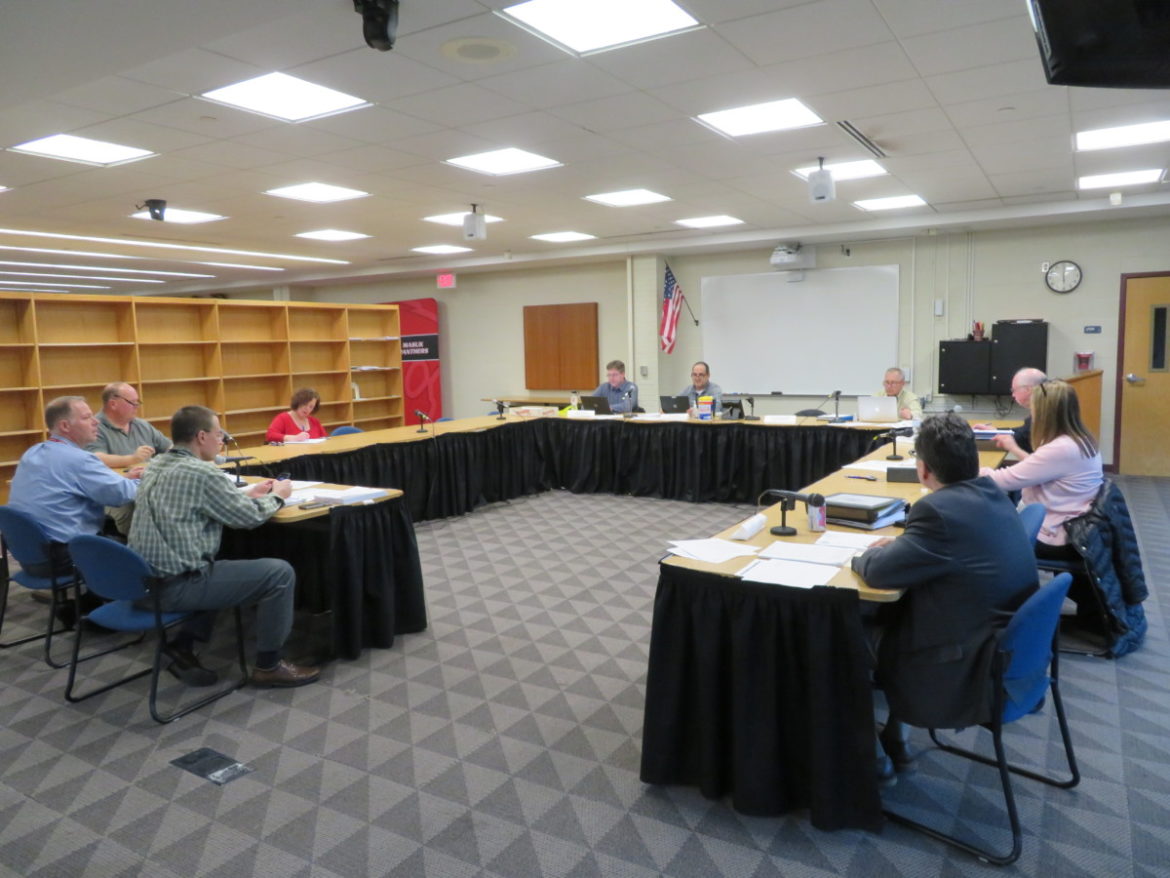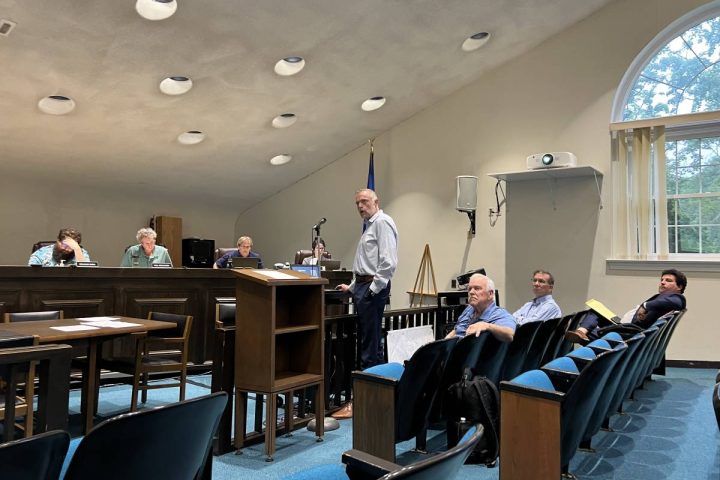MONROE, Conn. — Board of Finance members will participate in a budget workshop Thursday on the heels of Gov. Ned Lamont’s executive order foregoing referendums at a time of social distancing to slow the spread of the coronavirus.
The order requires a town’s “budget-making authority” to approve its budget and set the tax rate. In Monroe, that authority is the Board of Finance.
“I understand the order,” Chairman Michael Manjos said. “You have to keep people safe. We don’t have time to set up electronic voting, but hopefully this wake us up to the need.”

Though the finance board will make the final vote to adopt Monroe’s budget this year, Manjos said his board will receive input from Finance Director Ronald Bunovsky, the Board of Education and First Selectman Ken Kellogg.
“It’s not going to be one board that decides this,” he said. “We will take input from everyone.”
This will include comments from residents made during a public hearing.
“We will still do that, just over the phones and the computer,” Manjos said. “We encourage everybody to reach out to myself, Ken and other town officials, so we have their input.”
Some advantages
Manjos recalls the 2008 charter revision, which included a proposal to take away Monroe’s automatic budget referendum, instead requiring a petition that made it harder for a town-wide vote.
“I fought tooth and nail against removing the automatic referendum in the charter revision years ago,” he said, “and I would still fight against it.”
However, he said not having a referendum this year is not without its advantages.
“We don’t have to risk the budget going down in referendum,” Manjos said. “And we can go a little later before we finalize the budget, so we have more accurate final numbers.”
In addition to the executive order on the referendums, Lamont had also gave towns a 30-day-extension to adopt their final budgets for fiscal year 2020-21.
Among the information the Board of Finance is waiting on, Manjos said the state gave an estimate for a 10 percent increase in the cost of the health insurance plan the town and school district is on. By the third week of April, the state may have the actual number, according to Manjos.
“We’re hoping it will be less,” he said.
More risks
The $91.5 million town budget proposal for fiscal year 2020-21 carries a projected 2.6 percent tax increase. It includes $59.5 million for Monroe’s public schools and $31.9 million for town services.
The COVID-19 pandemic has created more risks for Monroe’s budget, according to Manjos.
“We don’t know how this is going to affect tax collections, but we have to assume it’s going to, and we assume that interest income will be cut,” he said. “We had good revenue last year, but it will be hard next year when rates are zero.”
“Everything’s at risk now because of revenue,” Manjos added. “Obviously, the state will spend more money. Could funding be less from the state now? We’ll examine everything we can think of to get the best guess on it.”
Another challenge Monroe faces is one similar to nearly every Connecticut town: figuring out the best way to handle special education costs, which can easily run over budget.
All of these issues will be discussed at Thursday’s budget workshop.
“We’re all going to learn lessons from this and be better for it,” Manjos said. “We’re one town. There will be challenges. We’ll make the best of it and do what’s in the best interests of the town long term.”







Why are those 2 “clowns” at the board meeting sitting about 1 1/2 feet from each other at a mostly empty meeting table (bottom left corner of the picture)?